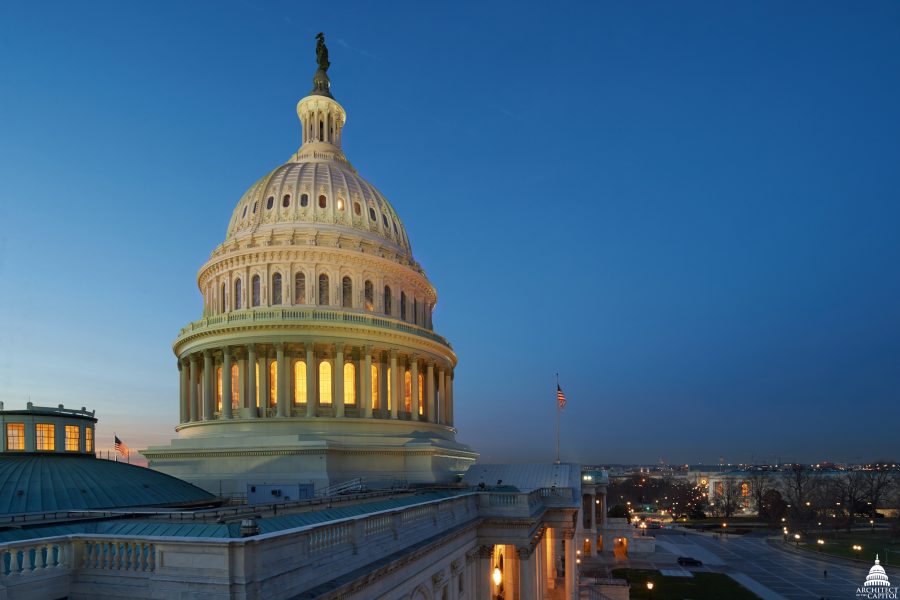House and Senate lawmakers are headed into conference for the fiscal 2021 defense policy bill after both chambers passed their respective legislation this week.
Senators voted 86-14 to approve their version of the National Defense Authorization Act on July 23. The House voted 295-125 to green-light its own bill July 21. Each package allows $740.5 billion in defense spending.
Their deliberations were complicated by the coronavirus pandemic, which continues to spread around the country as lawmakers met remotely and in Washington to discuss the text.
“I am incredibly proud of the work that the House Armed Services Committee was able to accomplish this year, despite the challenges posed by the COVID-19 pandemic, and strongly believe the FY ‘21 NDAA is an excellent piece of legislation that delivers for our service members and their families,” said HASC Chairman Rep. Adam Smith (D-Wash.). “The bill we passed … supports our troops, reflects our values, and provides for a strong national defense.”
Members must now hash out the differences between their bills, which give the Pentagon and other agencies that handle national defense the authority to use money offered by congressional appropriators starting Oct. 1. The annual legislation also lays out Capitol Hill’s policy priorities for the upcoming fiscal year, from artificial intelligence oversight to military housing reform to weapons procurement.
Topics likely to spark debate among the conferees include management of the nuclear weapons enterprise, how to structure the new Pacific Deterrence Initiative, and how many F-35 Joint Strike Fighters and submarines to buy, according to a person familiar with the discussions. Lawmakers may also spar over how to handle the withdrawal of American troops from Germany and changes to the President’s ability to call up the D.C. National Guard, among other points of contention.
The Trump administration on July 21 threatened to veto a final bill that keeps certain provisions from the House’s legislation that “seek to micromanage aspects of the executive branch’s authority, impose highly prescriptive limitations on the use of funds for Afghanistan, and otherwise constrain the President’s authority to protect national security interests.”
President Donald J. Trump has also said he would quash legislation that calls for the Army to rename military installations and facilities named after Confederate leaders.
Still, both chambers backed bills that require the Pentagon to remove Confederate names from places like Fort Bragg, N.C., within the next few years. The Senate’s language forces those changes in three years, while the House’s only takes one year. Despite Trump’s threats, the legislation garnered enough support to signal a veto-proof majority will pass the final bill out of Congress as well.
A slew of amendments added to the proposals include language to define the role of the Office of the Chief of Space Operations in the Space Force, to swap out the Airman’s Medal for a new Air and Space Force Medal, to bolster the defense supply chain, to reform the federal program that supplies local law enforcement agencies with military equipment, and more. Provisions to cut the defense budget by 10 percent failed in both chambers.
One amendment adopted in the House would require the Air Force Secretary to “provide a briefing on the potential use of a modular civil supersonic aircraft with a military-engineered front section to host multiple mission payloads,” while another would make the Space Force adopt naval ranks.
It’s unclear when conferees will begin meeting to discuss the ultimate bill, or who that panel will include, though lawmakers aim to send a final package to the White House by the end of 2020.
“The NDAA gives our military the personnel, equipment, training, and organization needed to implement the National Defense Strategy and thwart any adversary who would try to do us harm,” said Senate Armed Services Committee Chairman Sen. Jim Inhofe (R-Okla.). “By fully investing in our military growth and modernization, we’re restoring deterrence so no country wants to challenge us.”
